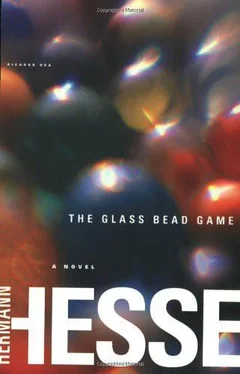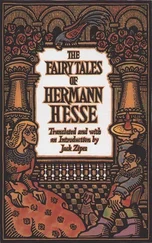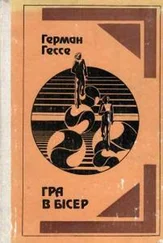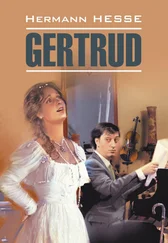It would lead us too far afield to attempt to describe in detail how the world of Mind, after its purification, won a place for itself in the State. Experience soon showed that a few generations of lax and unscrupulous intellectual discipline had also sufficed to inflict serious harm on practical life. Competence and responsibility had grown increasingly rare in all the higher professions, including even those concerned with technology. To remedy this, supervision of the things of the mind among the people and in government came to be consigned more and more to the “intellectuals” in the best sense of the word. This was particularly the case with the entire educational system; and indeed the situation is little changed to this day. In almost all the countries of Europe today the schools that are not still administered by the Roman Church are in the hands of those anonymous Orders which fill their ranks from the elite among the intellectuals. Although public opinion occasionally decries the strictness and the reputed arrogance of this caste, and although individuals have occasionally revolted against it, this leadership stands unshaken. Its integrity, its renunciation of all benefits and advantages other than intellectual ones, maintains and protects it. But it is also supported by what has long since become common knowledge, or at least a universal sense, that the continuance of civilization depends on this strict schooling. People know, or dimly feel, that if thinking is not kept pure and keen, and if respect for the world of the mind is no longer operative, ships and automobiles will soon cease to run right, the engineer’s slide rule and the computations of banks and stock exchanges will forfeit validity and authority, and chaos will ensue. It took long enough in all conscience for realization to come that the externals of civilization — technology, industry, commerce, and so on — also require a common basis of intellectual honesty and morality.
To return now to the Glass Bead Game: what it lacked in those days was the capacity for universality, for rising above all the disciplines. The astronomers, the classicists, the scholastics, the music students all played their Games according to their ingenious rules, but the Game had a special language and set of rules for every discipline and subdiscipline. It required half a century before the first step was taken toward spanning these gulfs. The reason for this slowness was undoubtedly more moral than formal and technical. The means for building the spans could even then have been found, but along with the newly regenerated intellectual life went a puritanical shrinking from “foolish digressions,” from intermingling of disciplines and categories. There was also a profound and justified fear of relapse into the sin of superficiality and feuilletonism.
It was the achievement of one individual which brought the Glass Bead Game almost in one leap to an awareness of its potentialities, and thus to the verge of its capacity for universal elaboration. And once again this advance was connected with music. A Swiss musicologist with a passion for mathematics gave a new twist to the Game, and thereby opened the way for its supreme development. This great man’s name in civil life can no longer be ascertained; by his time the cult of personality in intellectual fields had already been dispensed with. He lives on in history as Lusor (or also, Joculator) Basiliensis. Although his invention, like all inventions, was the product of his own personal merit and grace, it in no way sprang solely from personal needs and ambitions, but was impelled by a more powerful motive. There was a passionate craving among all the intellectuals of his age for a means to express their new concepts. They longed for philosophy, for synthesis. The erstwhile happiness of pure withdrawal each into his own discipline was now felt to be inadequate. Here and there a scholar broke through the barriers of his specialty and tried to advance into the terrain of universality. Some dreamed of a new alphabet, a new language of symbols through which they could formulate and exchange their new intellectual experiences.
Testimony to the strength of this impulse may be found in the essay “Chinese Warning Cry,” by a Parisian scholar of those years. The author, mocked by many in his day as a sort of Don Quixote (incidentally, he was a distinguished scholar in the field of Chinese philology), pointed out the dangers facing culture, in spite of its present honorable condition, if it neglected to develop an international language of symbols. Such a language, like the ancient Chinese script, should be able to express the most complex matters graphically, without excluding individual imagination and inventiveness, in such a way as to be understandable to all the scholars of the world. It was at this point that Joculator Basiliensis applied himself to the problem. He invented for the Glass Bead Game the principles of a new language, a language of symbols and formulas, in which mathematics and music played an equal part, so that it became possible to combine astronomical and musical formulas, to reduce mathematics and music to a common denominator, as it were. Although what he did was by no means conclusive, this unknown man from Basel certainly laid the foundations for all that came later in the history of our beloved Game.
The Glass Bead Game, formerly the specialized entertainment of mathematicians in one era, philologists or musicians in another era, now more and more cast its spell upon all true intellectuals. Many an old university, many a lodge, and especially the age-old League of Journeyers to the East, turned to it. Some of the Catholic Orders likewise scented a new intellectual atmosphere and yielded to its lure. At some Benedictine abbeys the monks devoted themselves to the Game so intensely that even in those early days the question was hotly debated — it was subsequently to crop up again now and then — whether this game ought to be tolerated, supported, or forbidden by Church and Curia.
After Joculator Basiliensis’ grand accomplishment, the Game rapidly evolved into what it is today: the quintessence of intellectuality and art, the sublime cult, the unio mystica of all separate members of the Universitas Litterarum. In our lives it has partially taken over the role of art, partially that of speculative philosophy. Indeed, in the days of Plinius Ziegenhalss, for instance, it was often called by a different name, one common in the literature of the Feuilletonistic Age. That name, which for many a prophetic spirit in those days embodied a visionary ideal, was: Magic Theater.
For all that the Glass Bead Game had grown infinitely in technique and range since its beginnings, for all the intellectual demands it made upon its players, and for all that it had become a sublime art and science, in the days of Joculator Basiliensis it still was lacking in an essential element. Up to that time every game had been a serial arrangement, an ordering, grouping, and confronting of concentrated concepts from many fields of thought and aesthetics, a rapid recollection of eternal values and forms, a brief, virtuoso flight through the realms of the mind. Only after some time did there enter into the Game, from the intellectual stock of the educational system and especially from the habits and customs of the Joumeyers to the East, the idea of contemplation.
This new element arose out of an observed evil. Mnemonists, people with freakish memories and no other virtues, were capable of playing dazzling games, dismaying and confusing the other participants by their rapid muster of countless ideas. In the course of time such displays of virtuosity fell more and more under a strict ban, and contemplation became a highly important component of the Game. Ultimately, for the audiences at each Game it became the main thing. This was the necessary turning toward the religious spirit. What had formerly mattered was following the sequences of ideas and the whole intellectual mosaic of a Game with rapid attentiveness, practiced memory, and full understanding. But there now arose the demand for a deeper and more spiritual approach. After each symbol conjured up by the director of a Game, each player was required to perform silent, formal meditation on the content, origin, and meaning of this symbol, to call to mind intensively and organically its full purport. The members of the Order and of the Game associations brought the technique and practice of contemplation with them from their elite schools, where the art of contemplation and meditation was nurtured with the greatest care. In this way the hieroglyphs of the Game were kept from degenerating into mere empty signs.
Читать дальше












